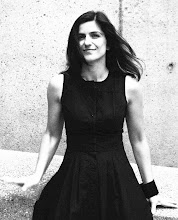entelecheia
Οκτάνα θα πη η εντελέχεια εκείνη, που αυτό που είναι αδύνατον να γίνη αμέσως το κάνει εντέλει δυνατόν, ακόμη και την χίμαιραν, ακόμη και την ουτοπίαν, ίσως μια μέρα και την αθανασίαν του σώματος και όχι μονάχα της ψυχής.
Όχι Μπραζίλια, μα Οκτάνα. Ανδρέας Εμπειρίκος, 1965
Octana would be that perfection, that what is impossible to do immediately makes it possible, even chimera, even utopia, maybe one day and the immortality of the body, not just the soul.
No Brasilia, but Octana. Andreas Empirikos, 1965
Entelechy (entelechia) (Via Wikipedia)
Entelechy, in Greek entelécheia, was coined by Aristotle and transliterated in Latin as entelechia. According to Sachs (1995, p. 245):
Sachs therefore proposed a complex neologism of his own, "being-at-work-staying-the-same".[17] Another translation in recent years is "being-at-an-end" (which Sachs has also used).[2]
Entelecheia, as can be seen by its derivation, is a kind of completeness, whereas "the end and completion of any genuine being is its being-at-work" (energeia). The entelecheia is a continuous being-at-work (energeia) when something is doing its complete "work". For this reason, the meanings of the two words converge, and they both depend upon the idea that every thing's "thinghood" is a kind of work, or in other words a specific way of being in motion. All things that exist now, and not just potentially, are beings-at-work, and all of them have a tendency towards being-at-work in a particular way that would be their proper and "complete" way.[17]
Sachs explains the convergence of energeia and entelecheia as follows, and uses the word actuality to describe the overlap between them:[2]
Just as energeia extends to entelecheia because it is the activity which makes a thing what it is, entelecheia extends to energeia because it is the end or perfection which has being only in, through, and during activity.
[2] Sachs, Joe (2005), "Aristotle: Motion and its Place in Nature", Internet Encyclopedia of Philosophy
[17] Sachs, Joe (1995), Aristotle's Physics: a Guided Study, Rutgers University Press
Όχι Μπραζίλια, μα Οκτάνα. Ανδρέας Εμπειρίκος, 1965
Octana would be that perfection, that what is impossible to do immediately makes it possible, even chimera, even utopia, maybe one day and the immortality of the body, not just the soul.
No Brasilia, but Octana. Andreas Empirikos, 1965
Entelechy (entelechia) (Via Wikipedia)
Entelechy, in Greek entelécheia, was coined by Aristotle and transliterated in Latin as entelechia. According to Sachs (1995, p. 245):
Aristotle invents the word by combining entelēs (ἐντελής, "complete, full-grown") with echein (= hexis, to be a certain way by the continuing effort of holding on in that condition), while at the same time punning on endelecheia (ἐνδελέχεια, "persistence") by inserting "telos" (τέλος, "completion"). This is a three-ring circus of a word, at the heart of everything in Aristotle's thinking, including the definition of motion.
Sachs therefore proposed a complex neologism of his own, "being-at-work-staying-the-same".[17] Another translation in recent years is "being-at-an-end" (which Sachs has also used).[2]
Entelecheia, as can be seen by its derivation, is a kind of completeness, whereas "the end and completion of any genuine being is its being-at-work" (energeia). The entelecheia is a continuous being-at-work (energeia) when something is doing its complete "work". For this reason, the meanings of the two words converge, and they both depend upon the idea that every thing's "thinghood" is a kind of work, or in other words a specific way of being in motion. All things that exist now, and not just potentially, are beings-at-work, and all of them have a tendency towards being-at-work in a particular way that would be their proper and "complete" way.[17]
Sachs explains the convergence of energeia and entelecheia as follows, and uses the word actuality to describe the overlap between them:[2]
Just as energeia extends to entelecheia because it is the activity which makes a thing what it is, entelecheia extends to energeia because it is the end or perfection which has being only in, through, and during activity.
[2] Sachs, Joe (2005), "Aristotle: Motion and its Place in Nature", Internet Encyclopedia of Philosophy
[17] Sachs, Joe (1995), Aristotle's Physics: a Guided Study, Rutgers University Press



0 Comments:
Post a Comment
<< Home